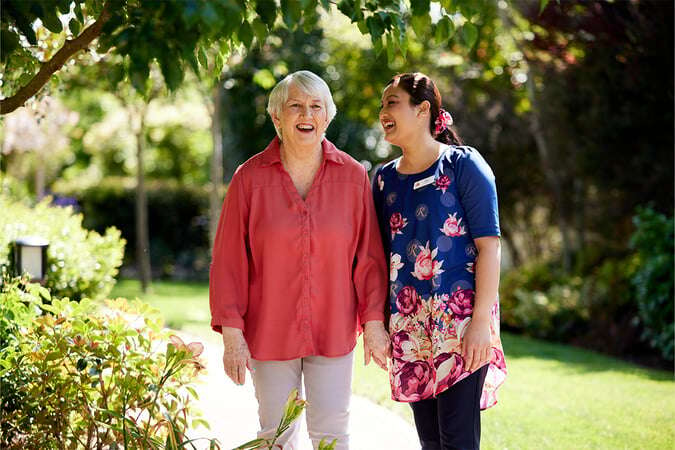People living with dementia often need additional care and support as their condition progresses. Knowing when the right time is to support someone living with the condition to transition into care can be difficult. There are a number of signs and considerations which can indicate when the timing may be right for specialised dementia care.
Behavioural Changes
The early signs of dementia can be subtle and present in ways unique to the person experiencing them. You may notice a person is confused during everyday tasks, has difficulty remembering recent events, grasps for simple words, gets lost in their own neighbourhood or displays increased levels of aggression. These changes can indicate that a person would benefit from the support of a more structured and specialised environment.
Safety Concerns
If a person living with dementia is having difficulty with everyday tasks such as taking regular medication, experiences frequent falls, or is prone to wandering in unsafe areas, a specialised dementia care facility may be the safest environment for them.
Caregiver burnout
Caring for someone living with dementia can be increasingly difficult as their condition advances. These challenges can be intensified if the caregiver is experiencing their own health difficulties or faces aggression and outbursts from the person they are caring for. It can reach a level where living in the family home is no longer the safest option for the caregiver or the person living with dementia.
Medical Needs
Like behavioural changes, the medical needs of a person living with dementia are unique and will change over time. A person may experience movement and balance difficulties, trouble eating and swallowing and loss of control over their bladder and bowel. Often the medical needs of someone living with dementia will present at the same time as other physical changes associated with ageing. In specialist dementia care environments medical staff are always on hand to manage complex needs, ensuring necessary care and support is provided.
Social Isolation
People living with dementia can experience social isolation as reduced cognitive function can make it difficult to connect with friends and family. People may become distant following a dementia diagnosis or presentation of symptoms. A care environment can offer a supportive community, where activities and interactions are designed to meet the needs of cognitive impairment, offering meaningful opportunities for a person living with dementia to engage with others
Communication Difficulties
Changes in the way a person living with dementia communicates are common and can be distressing for the affected person and those in their life. You may notice the impacted person finds it difficult to remember a word, has difficulty expressing emotions, experiences changes to reading and writing skills or has difficulty interpreting what is being said. Staff specialised in dementia care are trained to communicate with a person living with a dementia in a way that minimises confusion and distress and encourages the person to express themselves in a way they feel most comfortable.


